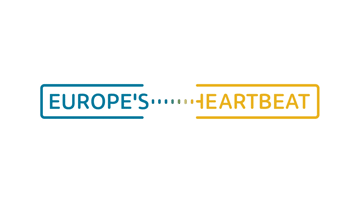For some time now, companies have been concerning themselves intensively with sustainability, for example with the question of how they can reduce their greenhouse gas emissions. But now the topic is gaining even greater relevance. This is because under the new European Corporate Sustainability Reporting Directive (CSRD), a large proportion of companies will be subject to reporting requirements. This means that they will have to report reliable figures not only in the area of finance – as was previously the case – but also on the subject of sustainability.
They can get support from experts like Florian Eckel (M.Sc. Physics). He is a project manager at the Fraunhofer Institute for Intelligent Analysis and Information Systems IAIS and develops cross-sector sustainability strategies for German SMEs. He also works closely with companies on climate change and sustainability.
In the interview, Florian Eckel explains the advantages of such sustainability accounting and how companies can develop it. In doing so, he provides numerous important hints and tips from his many years of experience.
- Mr. Eckel, you develop cross-industry sustainability strategies with German SMEs. What is the central issue for companies at the moment?
A current focus is compliance with the new European reporting requirement, the Corporate Sustainability Reporting Directive (CSRD). This is a major concern for companies in all sectors. To date, they have tended to focus on developing and implementing measures to reduce greenhouse gas emissions, for example. Parallel to this, greenhouse gas balances or CO2e footprints have been calculated in some cases. These have been used as metrics for marketing or sales activities. This is now changing.
- In which direction is it changing?
In the future, metrics will no longer be enough for marketing and sales departments. The CSRD requires companies to report reliable figures not only in the area of finance, but also within the area of sustainability. This reporting must stand up to external scrutiny, as companies are liable for it in case of doubt. Ultimately, they must establish sustainability accounting themselves. Relying on metrics calculated by external service providers to meet reporting requirements is not appropriate, just as it is not appropriate for a tax return.
- What do you understand by sustainability accounting?
It is the equivalent of financial accounting for sustainability. The initial focus is certainly on greenhouse gas emissions. But there are other environmental impacts and social factors. Sustainability accounting determines quantitative metrics and reports them in accordance with the CSRD. The CSRD also requires reconciliation with quantitative content such as corporate strategy, sustainability goals, planned measures, etc. This content must also be created and maintained by sustainability accounting.
- But sustainability accounting does not have a direct positive effect on sustainability. Why is it so important for companies?
This is true, but companies will not be able to escape it. There are several reasons for this: First, a large proportion of companies will be required to report under the CSRD. This can only be done by building up expertise and an understandable system with appropriate processes. Second, the B2B customers of the companies will demand CSRD-compliant metrics, not least because they will need them for their own reporting. Third, companies will need them to manage their own sustainability activities. And fourth, because the cost of financing on the capital market will depend on them. In a recent interview, one entrepreneur said that this was the first time he had pushed for a reporting topic out of self-interest. In the past, he would have waited for similar changes until implementation could no longer be prevented.
- How do you develop such a thing – sustainability accounting?
It is an iterative process taking several years. Companies should start with an initial accounting of their greenhouse gas emissions. It is easy to get bogged down in the details. In my experience, it makes sense to focus on the largest emitters first. In the following accounting year, after a cost-benefit analysis, individual aspects can be further detailed. These include the expansion of the emission sources considered as well as the frequently unsatisfactory data quality. In addition, further environmental and social aspects can be included in the balance. Moreover, after the first iteration, processes for automating data collection should be implemented to reduce the effort in subsequent years.
- With respect to data quality, you have shown that it should be optimized in an iterative process over several cycles. What you have not yet described is how companies should deal with this data. How should companies consolidate and evaluate this data and information?
This question has not yet been conclusively answered. The reporting requirements are just evolving. The market is very dynamic and different solutions are emerging: On the one hand, services are being offered that perform an annual calculation based on the data provided by the company. On the other hand, a number of companies are offering software solutions for the preparation of balance sheets and reports.
- What should a good solution be able to do?
Our experience with our solution is that appropriate software should support both strategy development and the determination of quantitative sustainability metrics. This is necessary to ensure transparency and to pass external audits. In addition, synergies can be exploited. Sustainability is a complex topic, and an overall solution helps to keep track of it.
- You mentioned the European reporting requirement, CSRD, as the reason. In addition, terms such as NFRD, ESRS and EFRAG are being bandied about. That's a lot of confusing acronyms. Perhaps you could shed some light on them?
By all means. The current European reporting requirement, the Non-Financial Reporting Directive (NFRD), will be replaced by the Corporate Sustainability Reporting Directive (CSRD). As a result, many more companies than before will be subject to reporting requirements. The content of the CSRD is to be reported in accordance with the ESRS (European Sustainability Reporting Standard). EFRAG (European Financial Reporting Advisory Group) develops proposals for reporting standards for the EU Commission. EFRAG also developed and published the first draft of the ESRS. The adopted standard was published by the EU Commission earlier this week, on July 31, 2023.
- Mr. Eckel, thank you very much for talking to us.
Contact:
E-Mail: florian.eckel@iais.fraunhofer.de
Phone: +49 2241 14-2308
https://www.iais.fraunhofer.de/nachhaltigkeit


